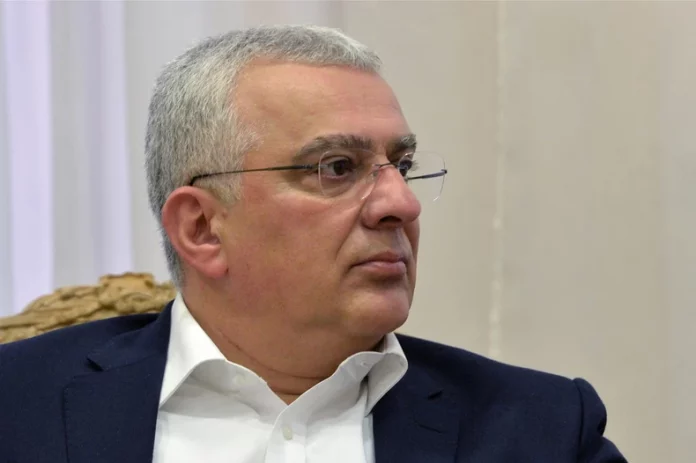“Unwelcome Developments in Croatia – Latest Online News”

Tanjug
In Montenegro, the President of Parliament Andrija Mandic, along with other leaders, are subtly referenced in correspondence from the Montenegrin Embassy to the Croatian Ministry of Foreign and European Affairs. This note adds to a growing series of communications following a resolution passed by the Montenegrin parliament addressing the genocide at Jasenovac, Dachau, and Mauthausen camps.
Lack of Reciprocity
The explanation indicates that their presence is unwelcome in Croatia due to systemic efforts undermining good neighborly relations and the ongoing exploitation of Croatia for domestic political agendas.
“The Ministry of Foreign and European Affairs expresses regret that a majority in Parliament chose to overlook Croatia’s requests, which could affect bilateral relations and Montenegro’s European trajectory,” they stated.
Several Croatian MPs supported the idea that certain members of the ruling party were declared “Personae Non Gratae” in response to the resolution.
Andrija Mandic, the President of the Montenegro Parliament, contends that modern Croatia is reminiscent of the NDH period and suggests that Croatia’s actions will ultimately be detrimental to Montenegro, particularly regarding the reactions toward three specific politicians. He emphasizes the importance of Montenegro’s commitment to fostering good neighborly relations.
Absence of Criteria
“Even though we are taken aback, we will not reciprocate,” Mandic remarked, urging the Croatian parliamentary delegation to dispel any doubts regarding the resolution with their colleagues. He emphasizes that they have allies in Montenegro.
Aleksa Bečić notes that he has not focused on Croatia’s actions. He interprets Croatia’s decision to label him undesirable as stemming from his party’s support of the resolution, although he represents more than just party leaders and cabinet members. Clearly, the criteria for such designations are lacking.
He observes that political dynamics appear unchanged in decisions involving other neighboring countries.
“Neither I nor my party has ever divided victims by faith or nationality; we have consistently condemned all genocides and highlighted that responsibility lies with individuals. No group can be collectively labeled as genocidal, as people are individuals and cannot be generalized. Such values are civil, European, and fundamental to our civilization,” he asserted.
And Where Now
Milan Knezević, President of the DNP, responded to allegations suggesting that “it seems the Ustashas and Nazis have prevailed.”
“I will continue to carry the name Zalud, which I earned in 1945 by liberating Karlovac from Ustashas and Nazis. It appears they have triumphed while we have lost,” he stated on social media, adding a poignant remark, “I will die here, in Rovinj’s reservation.”
A Civilizational Advancement
Andrija Mandic asserts that in the 21st century, ideologies that revive fascism and Nazism cannot be tolerated.
“By adopting the resolution concerning Jasenovac, we took a significant civilizational step forward and acknowledged that all deputies, regardless of their voting stance, recognize the genocide declared at Jasenovac,” Mandic stated.


